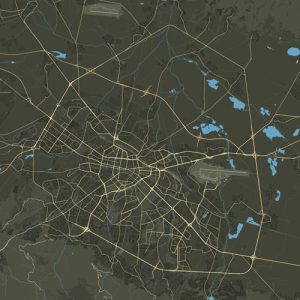The city was born with a Decree signed on September 2, 1947 by the then Prime Minister and leader of the BKP – Georgi Dimitrov, according to which the villages of Rakovski, Mariino and Chernokonyovo were united into one. The main credit for its construction goes to the youth brigadier movement. After that, chemical and cement industries developed in it, which failed to turn it into a district center, but greatly polluted the soil and atmosphere.
Even if it is artificially created, this city exists, it is an irrevocable part of the recent history of Bulgaria and keeps memories of things that are not only instructive, but also a source of pride for its inhabitants.
One of them is the historical museum, where you can see objects and photos from the life of the people of the three villages where Dimitrovgrad was founded, from the laying of the Baron-Hirsh railway in 1873, from the development of mining in this area. Numerous documents, weapons, letters, photographs, topographical maps and memories of eyewitnesses testify to the participation of local people in the final stage of the Second World War.
Original documents related to the creation of the city itself attract attention: from decisions, protocols and letters to architectural plans – dispassionate witnesses that have attracted over the years many historians, researchers and interpreters of the past.
Separate sections are devoted to agriculture, which the three constituent villages were once famous for, to industry, education, culture and the socio-political life of Dimitrovgrad. Interesting personal archives have been preserved, such as those of the former mayor Petar Yordanov, of Pencho Kubadinski – a well-known figure of the BKP, one of the main leaders of the brigadier movement, of which the majority of exhibits in the museum are: uniforms, badges, orders and medals, newspapers and newsletters, photos and tools.
The “Ethnography” department, established in 1998, houses a significant collection of traditional clothing, work tools and dishes, ornaments and church utensils.
Work time:
MONDAY – FRIDAY – 9.30 – 18.00
SATURDAY AND SUNDAY: 9.00 – 18.00
Entrance fees:
FOR VISIT ONE FACILITY: –
adults – BGN 2.00
students – BGN 1.00
pensioners – BGN 1.00
families (up to 5 people) – BGN 5.00
talk – BGN 5.00
Contacts:
Address: St. “St. Kliment Ohridski” №7
Tel. 0391/66787

